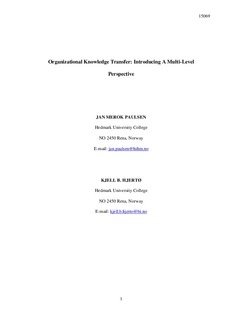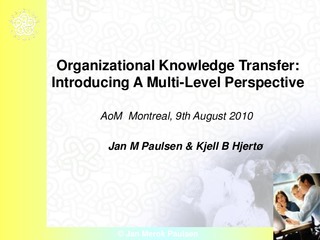| dc.description.abstract | Research on organizational knowledge transfer is burgeoning, due to the critical role of external knowledge as a source of advantages for firms as well as public sector organizations. Our study investigates knowledge transfer in the context of a Norwegian benchmarking project in which a majority of the country‟s municipality organizations participated over a period of two years. The explicit purpose of the project was to encourage the project groups to learn from the experiences of their partner organizations. A field sample of 82 benchmarking groups and 274 individual municipality managers were examined to test antecedents to knowledge transfer in this setting. Specifically, the relationships between knowledge transfer and group autonomy, group intensity of effort, absorptive capacity and cognitive distance were hypothesized in the current study, and possible moderator effects from group autonomy were tested on an exploratory basis. Our study was deliberately conducted using a composite multi-level design, in order to test individual and group level relationships simultaneously. The study detected a positive relationship between group intensity, group autonomy and knowledge transfer as well as a negative relationship between individual cognitive distance and knowledge transfer. | en_US |

